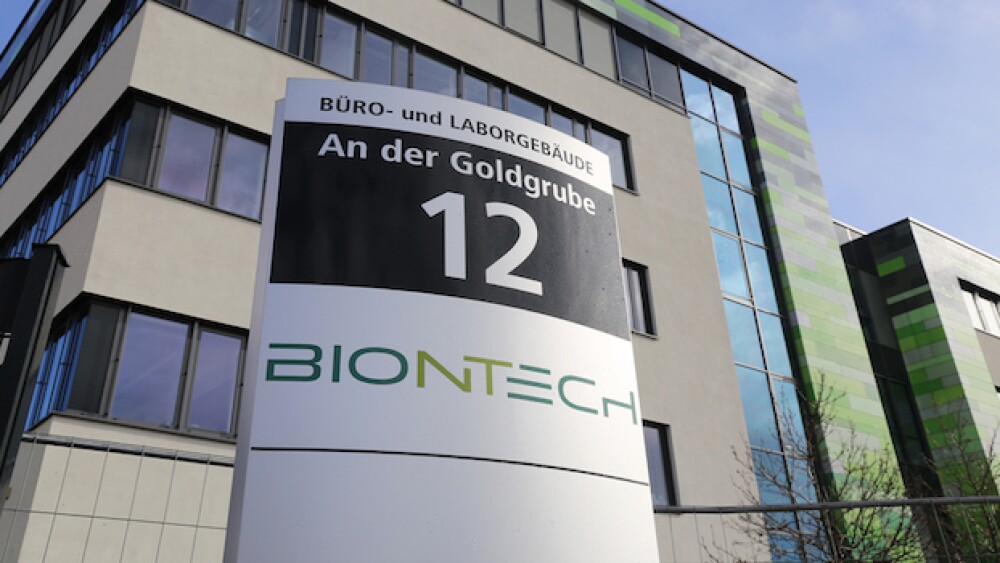LONDON, September 23, 2016 /PRNewswire/ --
Is cancer patients’ survival improved by high-throughput gene sequencing? A prospective clinical trial demonstrates that establishing molecular portraits improves survival of cancer patients by identifying actionable mutations for which an ad hoc targeted therapy can be offered. The final results of the MOSCATO trial (NCT01566019) will be disclosed this Friday September 23rd during an inaugural presentation at the MAP meeting, co-founded and co-organized by Cancer Research-UK.
(Logo: http://photos.prnewswire.com/prnh/20160527/373029LOGO )
“The primary objective of the MOSCATO trial was to demonstrate that incorporating high-throughput gene sequencing and using it to make therapeutic decisions could improve the clinical outcome for at least 25% of advanced/metastatic cancer patients. Final results showed that 33% of patients had an improved survival. This is the first demonstration that comprehensive genomic analysis could improve the clinical outcome for cancer patients” stated Pr Jean-Charles Soria, PI of the MOSCATO trial and Chairman of the Drug Development Department at Gustave Roussy Cancer Campus in Paris. Pr Soria will present the final results of MOSCATO during the MAP congress (Molecular Analysis for Personalised therapy).
“This positive result is particularly remarkable because the MOSCATO trial (Molecular Screening for CAncer Treatment Optimization) specifically excluded patients with well-established actionable targets for which approved and marketed targeted drugs are available (ie lung cancer with EGFR mutation, or ALK translocation, B-RAF mutant melanoma, GIST with KIT mutations or breast cancer with HER2 amplification).” stated Pr Fabrice André, Head of the INSERM U981 research laboratory, and co-designer of the trial.
MOSCATO trial is an academic trial performed and sponsored by Gustave Roussy Cancer Campus. It enrolled 1110 patients between November 2011 and March 2016. Patients enrolled in this trial suffered from various forms of solid tumors (lung, breast, head and neck, genito-urinary, gastro-intestinal, and a variety of rare cancers). An on-purpose tumor biopsy was collected from consenting patients, and tumor DNA was analyzed by comparative genomic hybridization (CGH) and Next Generation Sequencing (NGS) in the French NCI-labeled genetic platform at Gustave Roussy. Within a median of 14 days after the biopsy, an expert panel of scientists (biologists and bio-informaticians) and clinicians reviewed the results to define actionable molecular alterations and select ad hoc therapies.
Pr Gilles Vassal, Head of Clinical Research at Gustave Roussy, stated “MOSCATO is one among 12 trials deployed within the precision medecine initiative at Gustave Roussy. However it is the first trial to demonstrate in a prospective manner that precision medecine improves survival. This trial has requested a strong and large commitment from the whole institution, leveraging on multiple expertises: clinical teams, interventional radiologists, bio-pathologists, bio-informaticians, bio-statisticians, as well as clinical research and sponsoring personnel”.
“Among the 411 patients with an actionable target (49% of all enrolled patients with an available biopsy), 199 patients were treated with an ad hoc targeted therapy (19% of all enrolled patients with an available biopsy).” stated Dr Christophe Massard, head of the early drug development multidisciplinary committee at Gustave Roussy.
To evaluate the clinical benefit of the targeted therapy, the patient was used as its own control. The progression-free survival (PFS) from the most recent therapy on which the patient had just experienced progression before enrolment in MOSCATO was established for each patient. This PFS was compared to the PFS observed under the targeted therapy selected within the MOSCATO trial. Indeed, it is well established in oncology that as patients progress across multiple lines of therapies, PFS durations tend to decrease at each consecutive new line. The vast majority of the targeted therapies selected within the MOSCATO trial, where those available within open phase I trials running at Gustave Roussy (over 60 phase 1 trials are currently enrolling patients within the Drug Development Department at Gustave Roussy).
33% of patients treated within the MOSCATO trial had an improved outcome (at least a 30% increase of their PFS with the targeted therapy as compared to their baseline reference PFS). Moreover, 62% of the patients had disease control (ie objective response or stable disease).
“While SAFIR 01 has proven the feasibility of performing complex molecular characterisation of tumours in daily clinical practice, the MOSCATO trial demonstrates that this approach is effective to improve cancer patients’outcome” highlighted Pr Jean-Charles Soria.
Source : The MAP meeting, 23rd of september 2016, London- http://www.map-onco.net/
SOURCE Gustave Roussy




